
Top AI Innovators
Top AI leaders, creators, integrators, solutions, foundation model providers, and disruptors shaping the future of artificial intelligence in the Middle East.


Top AI leaders, creators, integrators, solutions, foundation model providers, and disruptors shaping the future of artificial intelligence in the Middle East.
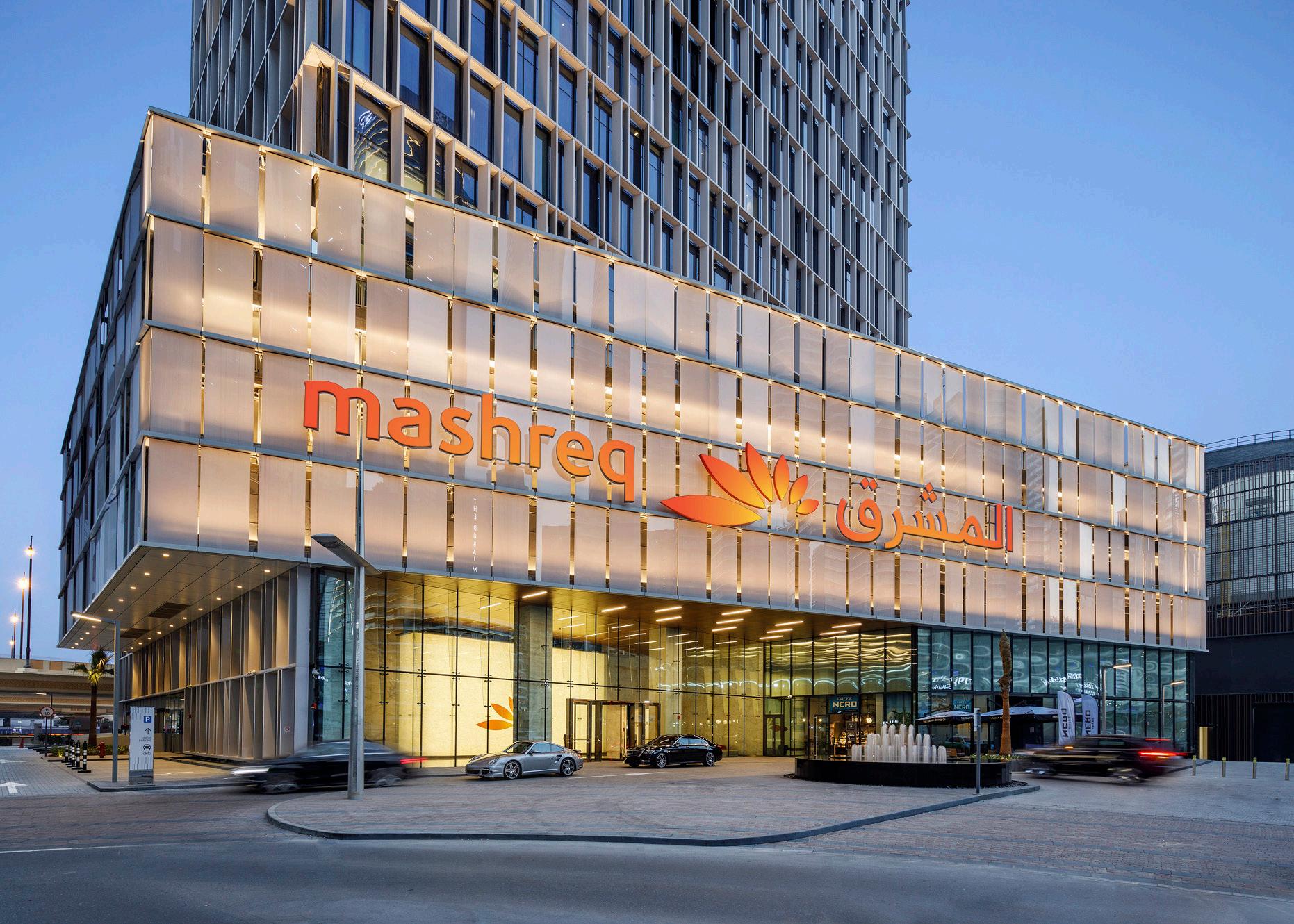
Kasun Illankoon, Editor-in-Chief at Tech Revolt, spoke with Mohamed Abdel Razek, Mashreq’s Group Head of Technology, Transformation & Information, to discuss the bank’s approach to innovation, AI integration, cybersecurity, and its broader strategy in the fintech landscape.
With nearly 30 years of experience in technology leadership roles, Mohamed has played a pivotal role in shaping digital transformation strategies for multinational corporations. Before joining Mashreq, he held senior positions at Standard Chartered Bank, where he served as Chief Technology and Operations Officer for Africa & the Middle East, and British American Tobacco, where he led global technology services.

Mashreq, known for its forward-thinking approach, has been a major driver of financial innovation in the Middle East. With a strong presence in key global financial centres, the bank has positioned itself as a challenger institution that continuously evolves to meet the demands of digital-first customers.
Recognised as the fastest-growing Middle Eastern banking brand by Brand Finance in 2024, Mashreq continues to push the boundaries of digital banking, embedded finance, and AIdriven customer experiences.
In this exclusive interview, Mohamed shares insights on how Mashreq leverages technology to maintain its competitive edge, its approach to partnerships with fintech firms, and the role of AI in transforming banking operations. He also discusses how the bank is addressing cybersecurity threats while ensuring seamless and secure digital transactions for its customers.
1. Mashreq has been a pioneer in innovation. How would you describe its current approach to staying ahead in the fintech space?
Mashreq today holds a market-leading position because we have collectively demonstrated a steadfast commitment to innovation, customer-centricity, and operational resilience. We pride ourselves on being a forward-thinking, future-proof financial institution, which enables us to maintain our position as the region’s most progressive challenger bank.
Several years ago, we made the strategic decision to reduce our branch network by more than 85%, shifting our focus towards delivering a 100% digital banking experience. Our digital transformation initiative has enabled us to transition almost all customer-facing services to digital platforms, allowing seamless interactions for our customers—whether for daily transactions or complex wealth management. By integrating security features such as device binding, we ensure that security and trust remain top priorities.
We continue to prioritise financial inclusion by leveraging next-generation technology, as demonstrated by our recently launched Software Development Kit (SDK) on the Etisalat business, e& Mashreq NEO, within a super-app by Telco in Egypt.
Our approach—thinking like a digital company rather than a legacy bank—has been crucial to our success.
2. With AI transforming industries globally, how is Mashreq integrating AI into its banking operations?
At Mashreq, every customer journey today involves AI in some capacity. Each of our departments leverages AI to enhance efficiency and future resilience.
From an operational standpoint, AI technologies have enabled us to automate numerous back-office processes, accelerating customer service while freeing up our staff to focus on more complex enquiries.
From a customer perspective, AI allows us to hyper-personalise our solutions, tailoring our offerings to suit individual customer needs. This helps us to demonstrate a deep understanding of each customer and deliver solutions seamlessly and proactively.
We also leverage AI to enhance efficiency in risk management and fraud detection. By analysing transaction data in real-time, our systems can swiftly identify unusual patterns, allowing us to take immediate action to mitigate risks and enhance customer trust.
A prime example of our AI-driven approach is the Eagle Eye platform, designed to enhance financial crime risk management. This solution features advanced customer segmentation, enhanced location identification, and behavioural network analytics, reimagining risk signals and data sources while redefining customer-centricity by integrating Know Your Customer (KYC) and Anti-Money Laundering (AML) processes with cybersecurity and fraud risk management.
Additionally, to enhance productivity and innovation, we have deployed CoPilot to assist employees with everyday tasks such as drafting emails, preparing documents, and summarising meeting minutes. For developers, CoPilot has significantly improved coding efficiency, product quality, and code testing, while accelerating time to market. Many of our developers are now certified to maximise CoPilot’s capabilities, driving realtime innovation and the delivery of cutting-edge solutions.

3. Can you shed light on how Mashreq is leveraging technology to enhance customer experience?
Thanks to AI, customers can now access intuitive, personalised services around the clock from anywhere. Generative AI (GenAI) is taking this enhanced customer experience to the next level.
A prime example is our sophisticated AI-driven chatbot. Capable of managing over 80 different scenarios, this chatbot ensures 24/7 service, offering hyper-personalised, efficient, and precise solutions, with a 90% intent recognition success rate. It engages in natural, empathetic conversations with customers via text or voice, anticipates their needs, proactively presents solutions, and tailors interactions in real-time—ultimately enhancing the overall banking experience.
4. What role does software development play in Mashreq’s strategy to maintain regional dominance?
To maintain our leadership in the regional financial sector, we are committed to ongoing investment in technology and innovation. We proactively develop our own solutions to harness innovation strategically, ensuring we deliver maximum value to our customers.
We view technology, including software development, as a crucial tool to enhance operations and customer experience. This approach ensures we remain at the forefront of banking in our region and globally.
5. Fintech partnerships are reshaping banking—how is Mashreq collaborating with startups or tech companies to drive innovation?
We see collaboration with fintechs and other industry disruptors as essential to our goal of redefining banking in the region. Some of our partnerships have fostered a progressive, resilient, and innovative banking environment while strengthening our position as a market leader.
Our partnerships focus on advancing Open Finance, Open Banking, and Embedded Finance, elevating the digitalisation journey for our customers.
Our digital studio is developing new digital assets for fintechs. For instance, we are partnering with TradeStream to deploy our trade asset sell-down AI model.
We are also collaborating with a Turkish fintech firm to introduce securitisation of receivables—an initiative that will be the first of its kind in the UAE. Additionally, we are working with Newbridge, a homegrown startup disrupting the loan syndication and agency marketplace.
The synergy of innovative ideas and solutions benefits both sides and will continue to grow, with customer-centricity at the core.
5. Data security is critical in today’s digital banking era. How does Mashreq ensure robust cybersecurity while staying innovative?
Mashreq has a zero-tolerance policy for fraud. We continuously strengthen our cybersecurity measures by raising awareness among staff and clients, refining operational processes, and integrating robust security protocols.
We invest in IT infrastructure upgrades, advanced threat detection systems, enhanced security protocols, and multifactor authentication to safeguard customer data and transactions. Additionally, we integrate security considerations into our digital customer journeys, prompting contextual risk awareness at various interaction points.
We employ machine learning and advanced analytics to identify and counteract cyber threats instantly. AI tools evaluate vulnerabilities, ensuring proactive protection for our systems and data. Blockchain technology further enhances secure
transactions for international trade and remittances, providing an immutable ledger that mitigates fraud risks. Additionally, we use advanced encryption and conduct thorough security audits to protect customer information.
Cybersecurity is an ongoing journey, and we remain fully committed to upholding the trust our clients place in us. We will continue delivering seamless banking experiences while maintaining the highest security standards.
7. What has been Mashreq’s biggest transformation initiative recently, and how has it impacted operations or customers?
The expansion of Mashreq NEO has had a transformative impact on both operations and customer experience. We have introduced Mashreq NEO to new markets, including Egypt and Pakistan, and developed a family of sub-brands such as Mashreq NEOBiz, NEO PAY, NEONXT, and NEO CORP.
Our roll-out of Mashreq NEO CORP across multiple regional markets has been particularly impactful for our corporate clients, enabling a truly digital-first corporate banking experience.
Additionally, our Banking-as-a-Service partnerships have facilitated flexible payment solutions via Open Banking and Embedded Finance, significantly advancing our financial inclusion and digitalisation efforts.
These efforts have earned us significant industry recognition, including being named the Best Performing Bank in the UAE by The Banker for three consecutive years, the Fastest-Growing Middle East Banking Brand by Brand Finance in 2024, and the Strongest Digital Banking Brand in the UAE for Mashreq NEO in 2024, among many other accolades.
8. Looking ahead, what technologies or trends do you believe will shape the future of banking in the region, and how is Mashreq preparing for them?
The banking landscape is rapidly evolving, with digital-only banks on the rise and traditional banks introducing digital-first offshoots. Further integration of banks into digital ecosystems is also expected.
AI-driven hyper-personalisation is now a necessity, as consumers demand tailored and time-sensitive solutions. Accordingly, innovation-driven advancements such as Open Banking and Embedded Finance will continue to expand.
To remain ahead of the curve, we continue to invest in technology and innovation, developing proprietary solutions and forging meaningful partnerships that redefine customer interactions, making banking more intuitive and accessible.

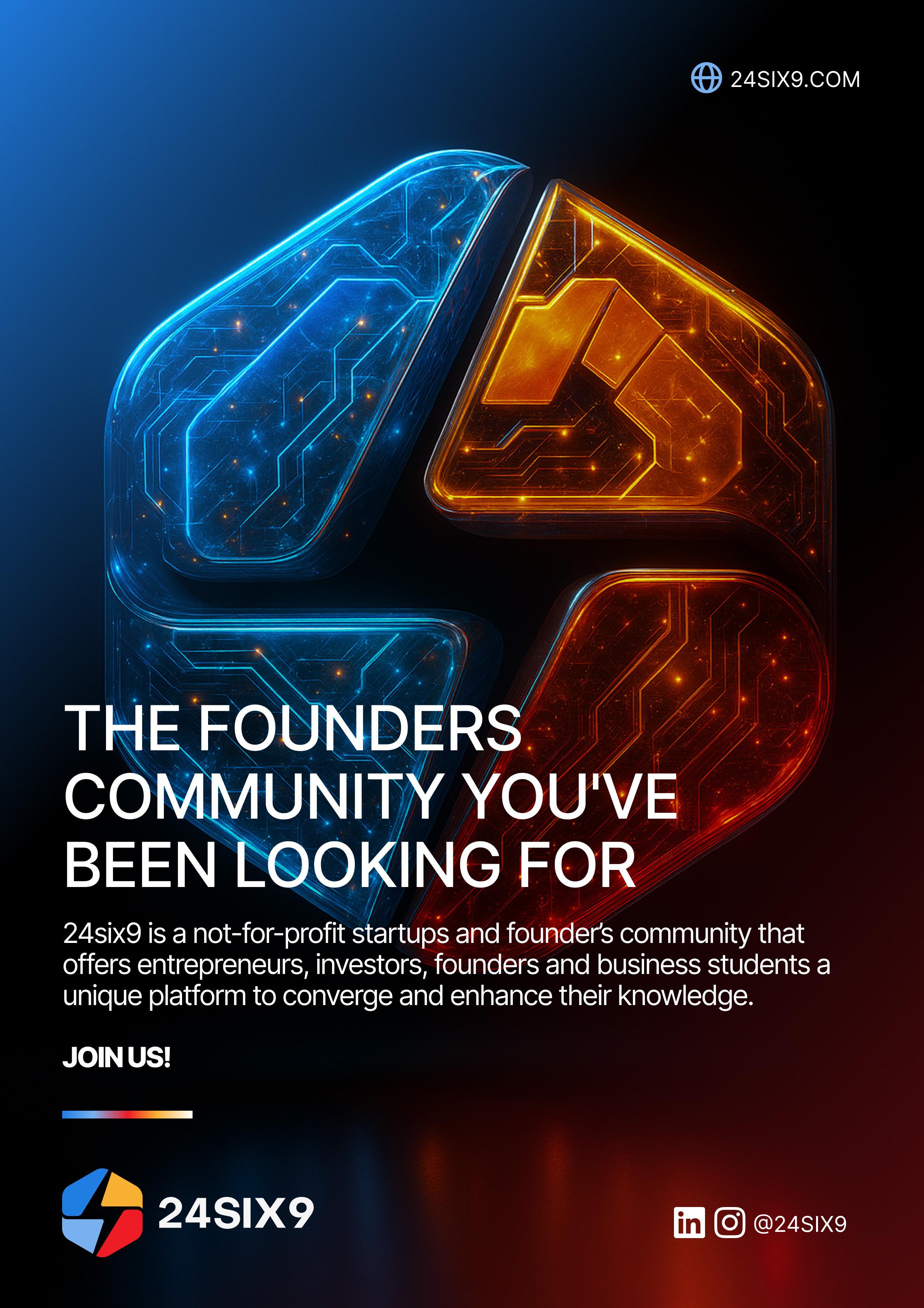

and weather data, enabling more accurate multi-modal route planning. Smart city systems could reduce commuting time by 15–20% and increase emergency response rates by 20–35%, according to research by McKinsey & Co.
The transportation sector also shows growing demand for GIS solutions, with route planning, traffic modelling, and accident analysis improving safety and efficiency. Agriculture, however, is the fastest-growing sector. GIS supports precision farming, crop yield prediction, soil and nutrient analysis, and hydrological data tracking. This boosts sustainability and productivity while lowering costs. Interactive maps help farmers optimise workflows and mitigate risks—preserving both business and environmental interests.
Technological innovation & integration
Advancements in mobile GIS, cloud computing, and real-time data analytics are significantly enhancing GIS functionality and accessibility. Mobile GIS applications, in particular, allow for geodata collection and management on the move—improving collaboration and decision-making. Integrating GIS with CRM, ERP, and enterprise asset management systems enables more comprehensive data analysis and practical outcomes. Despite challenges related to data complexity, this integration is a major growth driver.
mapping
Sustainability initiatives are becoming critical as climate change intensifies. APIs embedded in advanced mapping systems can optimise delivery routes using historical and real-time data, achieving greater energy and time efficiency. The integration of geospatial and navigation solutions not only enables seamless logistics but also cuts CO₂ emissions, fuel usage, and costs— helping companies meet sustainability targets. Government strategies, such as the UAE’s Net-Zero by 2050 goal and Saudi Arabia’s by 2060, particularly in transport and industry, will benefit. Advanced route optimisation could accelerate environmental and economic gains, contributing to a greener future.
Keeping up with the latest GIS trends and embedding mapping solutions in both public and private sector platforms is essential for maintaining competitiveness. As mapping technology becomes more integral, businesses and governments must leverage these innovations to improve operational efficiency, resource planning and sustainability outcomes—ensuring a resilient edge in a data-driven world.
Written by
Sabina Mirza-Akhmedova CEO Mappable
30 companies that significantly shaped the global AI landscape.
Divided into three distinct categories—AI Creators, AI Integrators, and AI Model & Foundation Model Providers—the list aimed to honour pioneers that advanced the development, deployment, and scaling of artificial intelligence across multiple sectors.
Each category followed a clearly defined framework established by Tech Revolt’s editorial team to determine where each company belonged. These definitions allowed for thoughtful and consistent placement while reflecting the diversity of innovation occurring across the AI ecosystem.
The selection process was rooted in a comprehensive review of recent news, public announcements, and company activities.
Tech Revolt’s editorial team exercised full discretion to include standout organisations that might not have had a dedicated PR or marketing team aware of this initiative. This ensured no groundbreaking contributors were overlooked due to a lack of visibility or internal outreach.
Additionally, several companies had already been identified ahead of time, and the editorial team began reaching out to confirm specific details and gather further insights.
The aim of this initiative was to spotlight the companies pushing boundaries in artificial intelligence—those redefining what is possible through innovation, seamless integration, and the development of foundational technologies. The Power List not only served as a recognition platform but also provided a snapshot of the companies driving practical change, scaling capabilities, and setting new benchmarks for what AI could deliver.



Companies that developed the underlying technologies that made most modern AI systems possible.
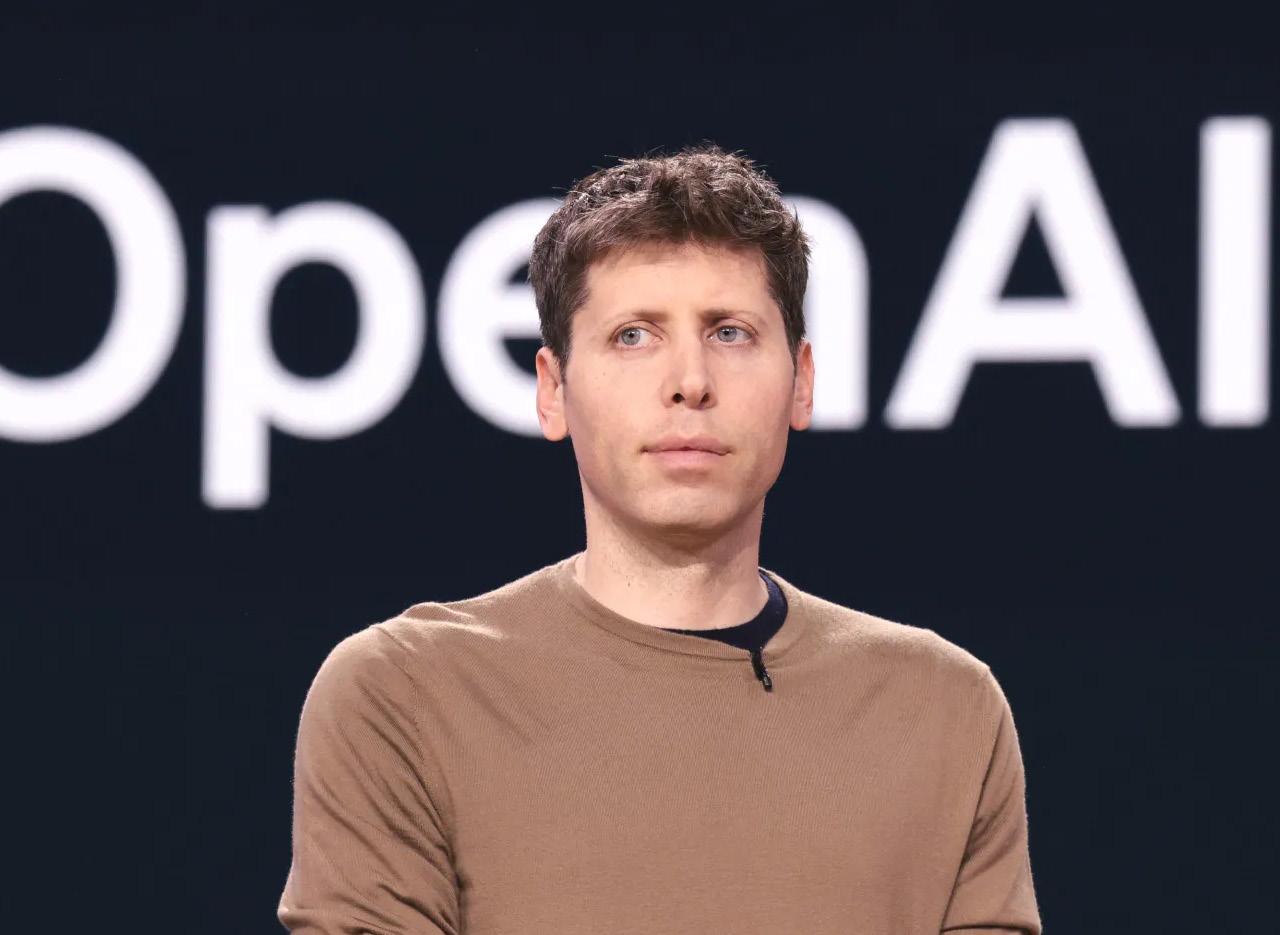
OpenAI stands as the trailblazer in the foundation model race, fundamentally reshaping the landscape of artificial intelligence. Founded in December 2015 by Elon Musk, Sam Altman, Greg Brockman, Ilya Sutskever, John Schulman, and Wojciech Zaremba, the company began with a mission to ensure that artificial general intelligence (AGI) benefits all of humanity. Though Elon Musk stepped away from the board in 2018, the company has since flourished under the leadership of Sam Altman, with Greg Brockman serving as President and CTO Mira Murati steering product development.
OpenAI’s GPT-4, a multimodal large language model released in 2023, quickly became the backbone for various AI-driven applications, including its flagship product, ChatGPT. Beyond text, OpenAI has expanded into image generation with DALL·E, programming assistance with Codex (later integrated into GitHub Copilot), and speech recognition with Whisper. These tools have been widely adopted in sectors ranging from education to enterprise productivity, making OpenAI one of the most commercially successful and influential AI companies to date.
What sets OpenAI apart is its hybrid approach: maintaining cutting-edge research through a capped-profit structure while also enabling broad industry adoption. The company maintains close partnerships with Microsoft, which has integrated OpenAI’s models into tools like Microsoft 365 Copilot and Azure OpenAI Service. These collaborations have amplified OpenAI’s global reach and enabled real-world deployment of AI at scale.
OpenAI’s impact is also evident in how it has influenced policy discussions around AI safety and alignment. The company introduced a reinforcement learning from human feedback (RLHF) methodology to align AI outputs with human values. It has been transparent about the risks of AGI and actively participates in public discourse on AI regulation.
Critically, OpenAI’s work has spurred an entire ecosystem of developers, businesses, and competitors. Its open API and integration capabilities have enabled thousands of startups to build on its models, essentially shaping the future of software development and human-computer interaction.
From research breakthroughs to societal debates, OpenAI continues to dominate both the technical and cultural narratives surrounding AI. With its unmatched reach and pioneering influence, OpenAI secures the top spot on this year’s AI Power List.
Google DeepMind has long been at the vanguard of artificial intelligence research, and its evolution into a powerhouse in foundation models via the Gemini AI family marks its dominance in the next phase of AI. Founded in 2010 by Demis Hassabis, Shane Legg, and Mustafa Suleyman in London, DeepMind was acquired by Google in 2014. The lab initially earned acclaim for its superhuman Go-playing agent, AlphaGo, but has since pivoted toward general-purpose intelligence, culminating in its 2023 launch of the Gemini models.
Gemini represents Google’s strategic unification of DeepMind’s deep learning expertise with Google Research’s language modeling capabilities. The result is a multimodal model that competes directly with OpenAI’s GPT series, integrated into everything from Google Search and Workspace to Android and ChromeOS. Gemini’s fluency in reasoning, multilingual understanding, and code generation makes it one of the most versatile models on the market.
What distinguishes DeepMind is its long-term vision toward AGI paired with an ethos of rigorous safety. DeepMind publishes some of the most respected papers in the field, influencing academic and industrial AI development. Unlike many
commercial-first AI labs, DeepMind balances competitive model releases with foundational research in neuroscience-inspired architectures, AI alignment, and scalable oversight.
DeepMind also introduced innovations like AlphaFold, which solved the protein folding problem, a landmark achievement bridging AI and biological science. This cross-disciplinary strength enables DeepMind to push AI beyond chatbots and content generation, addressing challenges in healthcare, physics, and sustainability.
Its commitment to responsible AI is evident through collaborations with external safety bodies, internal red-teaming practices, and robust evaluation frameworks for its models. DeepMind is not just building models, it’s building the scientific infrastructure of AI.
As AI becomes central to daily computing, DeepMind’s tight integration with Google’s core products and its sustained leadership in frontier research solidify its place among the top global AI labs. The Gemini brand, symbolic of human-machine duality and synergy, positions Google DeepMind as a central force shaping the future of AI.

Founded by Elon Musk in 2023, xAI is one of the newest entrants in the AI race, but it has quickly become one of the most visible due to its integration with X (formerly Twitter) and its bold mission to build AI that seeks the truth. The company’s flagship model, Grok, is designed as a conversational assistant embedded within the social media platform, offering users AI-powered insights, summarisation, and real-time interaction based on live data.
xAI’s core philosophy stems from Musk’s skepticism of AI alignment and belief in the need for a more transparent, exploratory AI system. Unlike safety-first models like Claude, Grok aims to embrace a certain edginess, offering responses that may be more unfiltered, humorous, or unconventional. This positioning has helped Grok resonate with a particular demographic of users looking for an alternative to more sanitized AI tools.
Despite being a startup, xAI benefits from Elon Musk’s massive influence and infrastructure access. It reportedly draws talent

from Tesla, SpaceX, and DeepMind, bringing together a highly technical team focused on rapid iteration and product-market fit. The tight integration with X gives Grok a unique feedback loop, learning from social media trends and user engagement in real time.
What sets xAI apart is its focus on real-time, web-connected intelligence. While other models are often limited by static training data, Grok is intended to operate with continuous learning and live data feeds, making it more dynamic in breaking news or evolving discourse. This edge also raises questions about misinformation and bias, concerns that xAI acknowledges but addresses with minimal filtering.
While still early in development compared to OpenAI or DeepMind, xAI’s ambitions are vast. Elon Musk envisions AI as a pathway to deeper truth-seeking and societal insight, and Grok is a step in that direction. If xAI can scale its offerings while maintaining its philosophical edge, it could emerge as one of the most disruptive forces in the AI field.

Mistral AI is a European AI company making waves with its focus on open-weight large language models that compete directly with the best from Silicon Valley. Founded in 2023 by Arthur Mensch, Guillaume Lample, and Timothée Lacroix, Mistral positions itself as a champion of sovereign European AI development. The company’s models, known for their efficiency and performance, offer a credible alternative to US and Chinese tech giants.
At the core of Mistral’s vision is accessibility. The company openly releases model weights, architecture details, and training procedures, encouraging community involvement and transparency. This open approach has made it a favourite among developers, academics, and institutions looking to build AI tools without being locked into proprietary ecosystems.
Mistral’s early models demonstrated exceptional performance on standard benchmarks, rivaling much larger systems. With a lean and focused team, Mistral has proven that agility and openness can compete with scale and secrecy. The company also emphasizes efficient deployment, tailoring its models for smaller hardware without sacrificing quality.
The European tech scene sees Mistral as a strategic asset. In a landscape often dominated by US and Chinese influence, Mistral represents a homegrown alternative aligned with EU values on data protection, ethical AI, and technological independence. The company has received strong backing from European venture capital and support from governments eager to foster local AI champions.

Mistral’s rise reflects a broader shift toward decentralised and open AI. It embraces collaboration, publishes research, and builds tools that can serve a wide range of industries from education to cybersecurity. As AI becomes increasingly critical to national infrastructure, Mistral’s role as a European foundation model leader is likely to grow.

DeepSeek AI has quickly emerged as a key player in China’s competitive artificial intelligence sector, specialising in large language models (LLMs) with a deep emphasis on language understanding and application. Founded in 2023 by a consortium of researchers and engineers with backgrounds in top Chinese universities and technology firms, DeepSeek AI is setting itself apart with a focus on academic excellence, precision in language processing, and robust performance tailored for enterprise-grade applications.
At the heart of DeepSeek’s success is its flagship large language model, which has been trained on an extensive multilingual and Chinese corpus. This has made it particularly effective for use cases where cultural nuance, idiomatic expression, and technical accuracy in the Chinese language are paramount. Unlike generalist models trained primarily on English content, DeepSeek’s models are engineered with the linguistic and contextual specifics of Chinese communication in mind.
One of the defining features of DeepSeek AI is its commitment to transparency and openness, following a model-sharing approach similar to that of Western companies like Hugging Face or Mistral AI. Its models have been released to the public and integrated into open-source AI ecosystems, giving

researchers, developers, and businesses an accessible starting point for innovation.
DeepSeek also places strong emphasis on retrieval-augmented generation (RAG), combining LLMs with real-time data access to deliver highly relevant and contextualised outputs. This makes the company particularly appealing to enterprises looking to deploy AI in high-stakes settings such as legal analysis, technical support, and content localisation.
Within China, DeepSeek AI has already forged partnerships across sectors such as education, fintech, and smart manufacturing. Its models are being embedded into software platforms, search engines, chatbots, and digital assistants that cater to both business and public users. The company also actively contributes to academic research, with papers regularly presented at leading AI conferences, further boosting its credibility in both academic and commercial spheres.
As China continues to push for AI self-reliance and global competitiveness, DeepSeek AI represents a strategic pillar in that effort. It embodies the next wave of AI innovation, domestically grounded, culturally informed, and open by design. The company’s trajectory suggests a future where Chinese enterprises can harness high-performance, locally tuned AI solutions without relying on international providers.

Meta AI, the research arm of Meta Platforms, has taken a unique approach to AI development through its open-source LLaMA (Large Language Model Meta AI) initiative. First introduced in 2023, LLaMA models have been positioned as community-first, offering transparent and reproducible AI capabilities without the closed-source constraints seen in many competing models. This move was both strategic and ideological: Meta aims to democratize access to powerful AI models to fuel innovation across academia, enterprise, and the open-source community.
Founded by Mark Zuckerberg, Meta has increasingly emphasised AI as central to its ambitions, especially as it pivots toward building the metaverse and enhancing digital interaction across its platforms. LLaMA is an essential component of that strategy, delivering state-of-the-art performance in language understanding, reasoning, and multilingual applications. With versions LLaMA 2 and 3, Meta has expanded model sizes and improved efficiency, making them competitive with GPT-4 and Gemini.
What makes Meta AI unique is its commitment to transparency. LLaMA models are released with documentation, training datasets, and benchmarks that empower researchers to experiment and build upon them. This contrasts with the more closed approaches of many US-based competitors. As a result, Meta AI has become a focal point for open science in machine learning.

The LLaMA series also reflects Meta’s long-standing investment in AI infrastructure. With one of the largest AI research teams globally, Meta AI continues to push boundaries in computer vision, speech processing, and embodied AI alongside its language models. Meta’s FAIR (Facebook AI Research) lab, led by renowned scientist Yann LeCun, supports this broader vision.
Though Meta’s motivations are sometimes questioned given its history with user data, the LLaMA initiative represents a shift toward responsible and collaborative AI. It invites public scrutiny and contribution, offering a counterbalance to the dominance of proprietary models in the AI landscape. Through LLaMA, Meta AI reinforces its identity as both a tech behemoth and a scientific contributor, occupying a pivotal role in the future of AI development.



Companies recognized for embedding AI tools into existing systems to enhance performance, decision-making, and productivity.
Saudi Aramco, the world’s largest energy company by revenue, is leading a sophisticated push to integrate artificial intelligence across the oil and gas value chain. With operations spanning exploration, production, refining, and distribution, Aramco views AI as essential for future-proofing its business and supporting the Kingdom’s Vision 2030 goals.
AI is embedded in Aramco’s operations through its Fourth Industrial Revolution Center, where digital twins, machine learning, and edge computing converge to optimise oilfield management. Real-time sensors collect data from drilling sites, and AI algorithms analyse this data to predict equipment failures, manage assets, and enhance safety protocols.
The company’s Ghawar and Khurais facilities, among the largest in the world, now rely on predictive maintenance models that have significantly reduced downtime and improved production rates. AI also supports seismic data analysis and reservoir simulation, accelerating exploration timelines and enhancing precision in resource extraction.
Beyond upstream innovation, Aramco is using AI to improve energy efficiency in refining and logistics. Smart systems manage heat recovery, emissions tracking, and supply chain coordination, helping the company meet ambitious sustainability benchmarks.
Oracle MEA has become a driving force behind cloudenabled AI transformation across the Middle East and Africa. Leveraging its global expertise in enterprise software and databases, Oracle is equipping regional governments and enterprises with AI tools that enhance productivity, decisionmaking, and citizen engagement.
Oracle’s Fusion Cloud suite integrates AI throughout its ERP, HCM, and CX platforms, automating everything from payroll to supply chain forecasting. The company’s AI capabilities include adaptive learning, anomaly detection, and predictive analytics, features that are increasingly crucial for public sector digital initiatives and private sector efficiency.
In the region, Oracle partners with ministries and corporations to deploy AI-powered solutions that are scalable, multilingual, and compliant with data sovereignty laws. Its cloud regions in the UAE and Saudi Arabia ensure local data storage while enabling high-performance AI compute services.
Oracle’s AI-enabled digital assistants are widely used in government portals and service apps, offering citizens 24/7 support in both Arabic and English. These assistants handle service requests, provide information, and streamline access to public services, all while learning from user interactions to improve over time.

AI also plays a role in corporate operations, from automating HR processes to optimising global shipping routes. Aramco’s investments in AI talent, startups, and R&D centres demonstrate its commitment to creating a data-driven, resilient organisation.
As the energy sector faces growing pressure to innovate and decarbonise, Aramco’s AI strategy sets a new standard for how traditional industries can embrace advanced technologies. With a global footprint and a local-first innovation approach, Aramco is not just transforming oil, it’s shaping the future of intelligent energy.

With its growing focus on generative AI, Oracle has introduced new tools that allow customers to create tailored models using their own enterprise data.
This opens up powerful use cases in personalised healthcare, financial fraud detection, and customer support. By combining AI with cloud security and enterprise scale, Oracle MEA is building the foundational layer for the region’s next wave of intelligent digital services.
du, the Emirates Integrated Telecommunications Company (EITC), has emerged as a leader in digital connectivity and innovation in the UAE. Since its launch in 2006, du has played a critical role in accelerating the country’s digital transformation, delivering telecom, broadband, cloud, and enterprise solutions tailored for an increasingly connected society. Today, AI forms a cornerstone of du’s strategy to support smart cities, autonomous systems, and national digital initiatives.
At the heart of du’s innovation is its AI-powered infrastructure. From predictive maintenance of network equipment to intelligent traffic routing and real-time threat detection in cybersecurity, du leverages AI to ensure high availability and performance across its services. The company uses AI to continuously monitor and optimise network loads, enabling faster data speeds and lower latency.
In the enterprise space, du offers AI-as-a-service solutions to businesses across sectors. These include chatbot development, customer behaviour analytics, and smart surveillance. By embedding AI into cloud and IoT platforms, du empowers organisations to make data-driven decisions and automate workflows. Its partnerships with government bodies also support large-scale AI implementations in public safety, health, and education.
Avaya, a global leader in communications solutions, has long been synonymous with enterprise-grade contact centres and unified communications. In the Middle East, the company continues to drive innovation through the integration of artificial intelligence, helping businesses transform how they connect with customers. Avaya’s AI strategy is focused on delivering hyper-personalised, real-time experiences across voice, chat, and digital platforms.

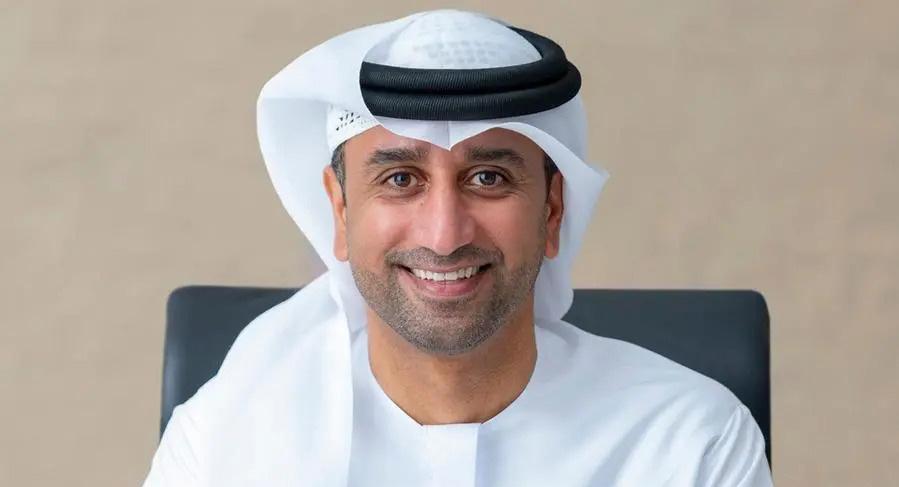
du’s customer service has been significantly enhanced through AI. Virtual assistants handle millions of queries, reducing wait times and freeing human agents for complex issues. AI algorithms also recommend personalised plans based on user behaviour and preferences, improving retention and satisfaction. As part of the UAE’s AI 2031 strategy, du is actively investing in AI research, training programmes, and innovation hubs. The company supports national ambitions through collaborations on 5G-enabled AI applications, such as autonomous vehicles, drone deliveries, and smart city infrastructure.
Under the leadership of Fahad Al Hassawi, du has made it clear that AI is not a future goal, it is a present priority. With a sharp focus on digital resilience, data sovereignty, and service personalisation, du continues to build the technological backbone for the UAE’s AI-first economy.
Through its Experience Platform, Avaya enables organisations to implement AI-powered chatbots, virtual agents, and intelligent routing systems. These tools streamline service delivery, reduce call resolution times, and empower human agents with relevant context. By analysing tone, intent, and customer history, Avaya’s AI tools can predict user needs and suggest optimal responses, dramatically improving satisfaction scores.
The company is also pioneering the use of AI in sentiment analysis and agent coaching. Contact centre supervisors receive live insights into customer interactions, helping them intervene when needed and enhance agent performance over time. This fusion of automation and human touch is at the heart of Avaya’s approach to AI.
In the GCC region, Avaya partners with major banks, healthcare providers, and government entities to build smart service frameworks. Its AI-driven solutions are tailored for regional languages and local compliance, making them highly adaptable to diverse market needs. With AI now embedded in its cloud-native architecture, Avaya is transforming from a telecoms provider into a full-spectrum digital experience enabler. As demand for scalable, intelligent communication surges, Avaya remains central to helping organisations deliver seamless, AI-enhanced customer journeys.
Thales Group, the French multinational with a strong Middle East presence, is advancing the role of artificial intelligence across defence, aerospace, and digital identity. With decades of experience in mission-critical systems, Thales integrates AI to enhance situational awareness, automate decisionmaking, and safeguard sensitive data.
AI is central to Thales’ military and civilian technology stack. In defence, the company deploys AI to analyse battlefield data, anticipate threats, and support autonomous system operations. Its radar and surveillance platforms incorporate machine learning to identify objects and movement patterns, improving both accuracy and speed in complex environments. Thales also applies AI in smart transportation and digital identity verification. At border crossings and airports, its biometric systems use facial recognition powered by neural networks to provide secure, contactless processing.
The technology has already been implemented in several GCC countries, improving both security and traveller convenience. Cybersecurity is another critical area. Thales leverages AI to detect anomalies across digital networks, predict vulnerabilities, and enable faster response to cyberattacks. Its AI-powered security operations centres (SOCs) support governments and large enterprises with real-time threat intelligence.


With a regional focus on sovereign capability and data privacy, Thales aligns its AI efforts with local governance and compliance. Its collaborations with academic institutions and national defence ministries ensure technology is tailored for regional needs.
As AI reshapes critical infrastructure, Thales remains a trusted partner for governments and enterprises seeking resilient, intelligent systems that meet the highest standards of security.
Cequens, a cloud communications platform based in Egypt, is quietly becoming one of the most influential AIdriven messaging providers in the Middle East and North Africa. Through its CPaaS (Communications Platform as a Service) offering, Cequens enables enterprises to connect with customers via SMS, voice, email, and chat apps, all intelligently managed through AI engines designed for engagement and efficiency.
AI is embedded deeply in Cequens’ architecture. Its smart routing systems determine the optimal communication channel and timing for each message, while natural language processing (NLP) tools help interpret and respond to customer inputs in real time.
Whether powering two-factor authentication or automated reminders, Cequens ensures messages are not only delivered but also contextually relevant. The company also excels in conversational AI, offering AI-powered bots that can be deployed across platforms like WhatsApp and Facebook Messenger.
These bots handle common queries, facilitate transactions, and escalate issues when necessary, reducing the load on human agents and improving customer response times.
In the post-pandemic era, Cequens has supported digital transformation efforts across banking, healthcare, and logistics by enabling secure and scalable communication solutions.The platform is compliant with regional data protection standards and offers localisation in both Arabic and English, making it ideal for cross-border businesses in the region.
As businesses seek smarter, more efficient ways to engage their audiences, Cequens is poised to play a key role in delivering frictionless communication powered by AI.
Careem was founded in 2012 by Mudassir Sheikha and Magnus Olsson, both former consultants at McKinsey & Company. Their vision was to simplify and improve transportation across the Middle East, North Africa, and South Asia (MENASA) region. Starting as a ride-hailing service in Dubai, Careem rapidly expanded its operations to become a leading technology platform in the region.
Over the years, Careem has significantly impacted urban mobility by providing reliable and affordable transportation solutions. Its services have empowered millions of users and created numerous employment opportunities, particularly for drivers, known as “Captains.” In 2020, Careem was acquired by Uber for $3.1 billion, marking one of the largest tech acquisitions in the Middle East.
Careem has been at the forefront of integrating artificial intelligence (AI) to enhance its services. By leveraging AI, Careem has optimized route planning, reduced wait times, and improved overall user experience. The company’s AI-driven algorithms analyze vast amounts of data to predict demand patterns, enabling efficient allocation of resources. Moreover, Careem’s AI initiatives extend beyond transportation. The company has developed a “Super App” that offers a range of services, including food delivery, digital payments, and courier services.
AI plays a crucial role in personalizing user experiences across these services, from recommending restaurants to facilitating secure transactions.
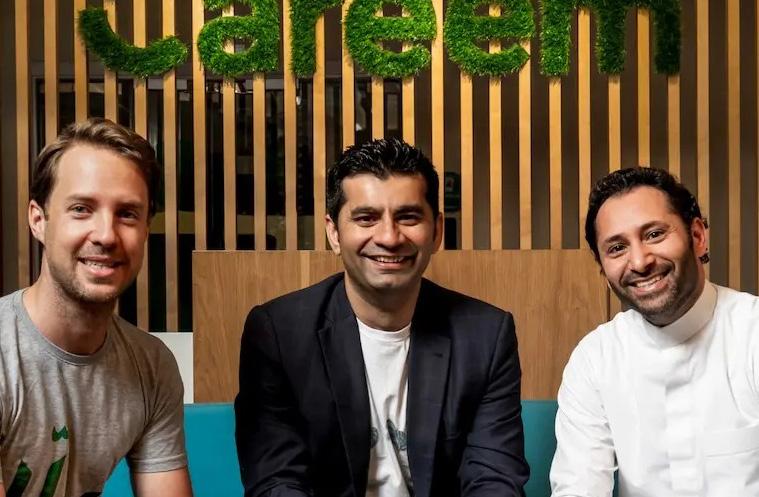
Careem’s commitment to localizing its services sets it apart. The company has tailored its AI models to understand and cater to the linguistic and cultural nuances of the MENASA region. This localization ensures that services are relevant and accessible to a diverse user base. Additionally, Careem invests in AI research and development to address regional challenges. For instance, the company explores AI solutions to improve traffic management in congested cities and enhance safety features for both drivers and passengers.
Looking ahead, Careem aims to further integrate AI into its operations to drive innovation and efficiency. The company plans to expand its Super App offerings, incorporating more AI-powered services to meet the evolving needs of its users. By continuing to invest in AI and technology, Careem aspires to be a catalyst for digital transformation in the Middle East and beyond.
Founded in 2017 by Mohamed Alabbar, Noon has rapidly evolved into one of the Middle East’s most ambitious digital commerce platforms. With backing from the PIF of Saudi Arabia, Noon was envisioned as a homegrown competitor to global e-commerce giants, and has since expanded into logistics, fintech, and food delivery across Saudi Arabia, the UAE, and Egypt.

What sets Noon apart is its strategic use of artificial intelligence to drive decisionmaking across its ecosystem. From dynamic pricing and personalised product recommendations to inventory forecasting and last-mile delivery optimisation, AI is at the heart of Noon’s operational infrastructure. By analysing real-time consumer behaviour and regional trends, Noon fine-tunes its offerings to meet local demand with precision.
The company also leverages AI to enhance fraud detection, automate customer service through chatbots, and support sellers on its platform with predictive insights. Its seller-focused tools use machine learning to recommend pricing, manage stock levels, and suggest bestselling categories, empowering local businesses to scale efficiently.
Noon’s commitment to localization runs deep. Unlike Western platforms that import global models, Noon builds AI tools grounded in the linguistic, economic, and cultural contexts of the Middle East. This local-first approach not only improves user engagement but also ensures that merchants and buyers get solutions tailored to their environment.
With its robust logistics arm Noon Express, and fintech extension Noon Payments, the company is building a vertically integrated, AI-powered commerce engine for the region.
As competition intensifies, Noon continues to invest in regional AI talent and infrastructure, laying the groundwork for a future where homegrown innovation drives economic growth across the digital marketplace.

G42, established in 2018 and headquartered in Abu Dhabi, has rapidly emerged as a leading force in artificial intelligence (AI) and cloud computing. Under the leadership of Sheikh Tahnoun bin Zayed Al Nahyan, the UAE’s National Security Advisor and Deputy Ruler of Abu Dhabi, G42 has positioned itself at the forefront of AI-driven transformation across various sectors, including healthcare, energy, finance, and national security.
At the helm of G42’s operations is Peng Xiao, the company’s CEO, who brings a wealth of experience from his tenure at DarkMatter Group. Together, Sheikh Tahnoun and Peng Xiao have steered G42 towards becoming a central player in the UAE’s ambition to be a global AI hub. The company’s workforce has expanded significantly, reaching approximately 25,000 employees by 2024.
G42’s commitment to AI innovation is exemplified by its development of Falcon, an open-source large language model (LLM) that has garnered international attention. Falcon has been recognized for its performance, rivaling models from major tech companies like Meta and Google. This achievement underscores G42’s capabilities in developing cutting-edge AI technologies that cater to both regional and global needs.
In a significant move to bolster its global partnerships, Microsoft invested $1.5 billion in G42, marking a strategic alliance aimed at enhancing AI infrastructure and services.
In a significant move to bolster its global partnerships, Microsoft invested $1.5 billion in G42, marking a strategic alliance aimed at enhancing AI infrastructure and services. This collaboration includes integrating G42’s AI applications with Microsoft’s cloud platform, Azure, to deliver advanced digital solutions across the Middle East, Central Asia, and Africa.
G42’s portfolio extends beyond AI models to encompass a range of subsidiaries and initiatives. Notably, the company acquired Bayanat, a geospatial data provider, to enhance its satellite-based services. Additionally, G42 has been instrumental in establishing MGX, an investment firm specializing in AI technologies, in collaboration with Mubadala Investment Company.
The company’s strategic direction reflects the UAE’s broader vision of leveraging AI for economic diversification and technological leadership. G42’s initiatives align with national objectives to reduce reliance on fossil fuels and position the UAE as a central player in the global AI landscape.
However, G42’s rapid ascent has not been without scrutiny. The company’s previous ties with Chinese entities raised concerns among U.S. authorities regarding potential technology transfers. In response, G42 has taken steps to divest from Chinese investments, signaling a shift towards strengthening partnerships with Western tech firms.
In summary, G42 stands as a testament to the UAE’s strategic investment in AI and its commitment to fostering innovation. Through its expansive projects, global partnerships, and focus on ethical AI development, G42 continues to shape the future of artificial intelligence, both regionally and internationally.
Derq is a cutting-edge AI company focused on improving road safety and traffic management. Derq leverages artificial intelligence and machine learning to predict and prevent traffic accidents. The company’s platform integrates with existing traffic infrastructure to analyze real-time data, providing actionable insights to city planners and transportation authorities.
Derq’s technology is particularly impactful in urban environments, where traffic congestion and accidents are prevalent. By utilizing AI to monitor and interpret traffic patterns, Derq enables proactive measures to enhance road safety, such as adjusting traffic signals and alerting drivers to potential hazards. The company’s innovative approach has garnered attention from governments and municipalities worldwide, solidifying its role as a key player in the smart city movement.

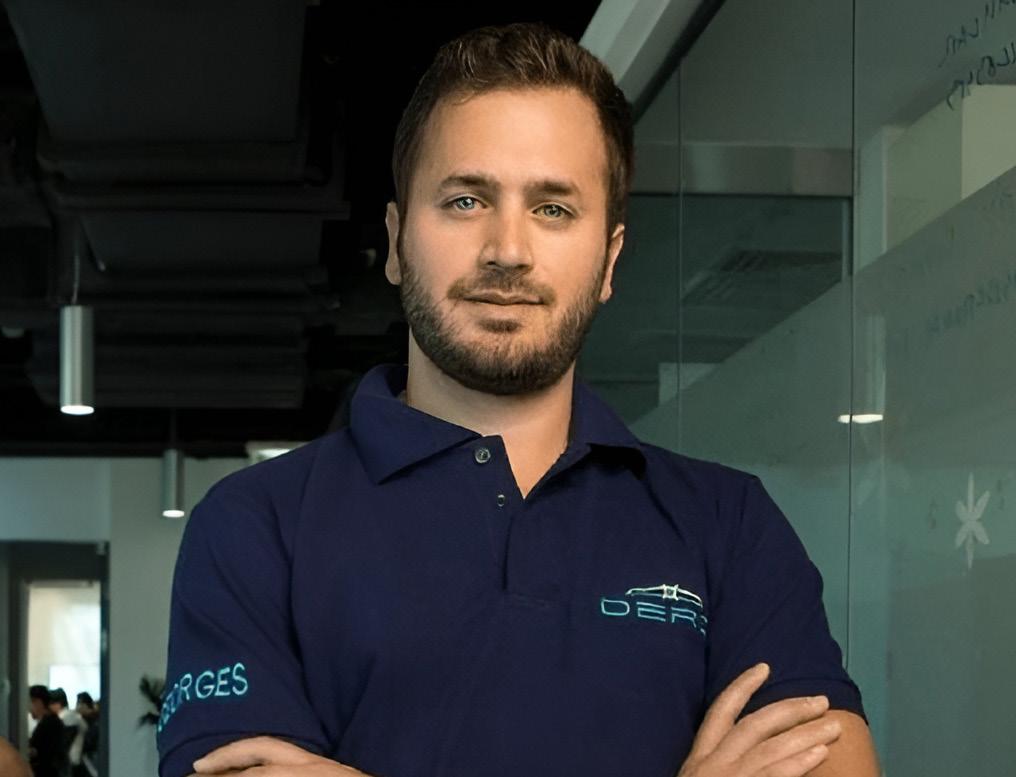
Astra Tech is a fast-growing UAE-based technology ecosystem builder that is redefining how consumers engage with digital services. At the heart of its innovation lies its flagship offering—Botim AI, a multi-service platform that has rapidly evolved from a voice and video calling app into an AI-powered super app. Leveraging artificial intelligence, AstraTech is building integrated experiences across sectors such as banking, e-commerce, health services, communication, and digital identity verification.
Founded by Abdallah Abu Sheikh, an Emirati entrepreneur, Astra Tech reflects the ambition of the UAE’s broader digital transformation vision.
Under his leadership, the company acquired several startups and platforms, integrating them into Botim’s growing ecosystem, including PayBy and Rizek.
What makes Astra Tech unique is its commitment to embedded AI infrastructure across verticals. From conversational commerce to voice recognition tools, the company enables seamless, intelligent experiences— particularly for underserved populations like migrant workers and low-income users in the region.
Botim’s AI features, such as document summarisation, translation, voice AI and digital assistant capabilities, show Astra Tech’s commitment to human-centred AI design that merges daily utility with regional relevance.
With strategic partnerships and government support, Astra Tech is setting the standard for how AI can become invisible yet impactful in everyday life, positioning itself as a leader in MENA’s AI-driven consumer tech ecosystem.

Sarwa is a fintech startup that utilizes AI to make investing more accessible and affordable. Founded by Mark Chahwan, Khaled Saab, and Nadim Karam, Sarwa offers a robo-advisory platform that provides personalized investment strategies based on individual financial goals and risk tolerance. By automating the investment process, Sarwa eliminates the need for traditional financial advisors, reducing costs and barriers to entry for everyday investors.
The platform’s AI algorithms continuously monitor market trends and adjust portfolios accordingly, ensuring optimal performance and risk management. Sarwa’s commitment to transparency and user education further distinguishes it in the fintech space, empowering users to make informed financial decisions.
The company’s innovative use of AI has made it a popular choice among millennials and first-time investors seeking a simplified approach to wealth management.
Quant Data & Analytics is a leading firm specializing in converting complex data into actionable business insights through AI and machine learning.
Founded by Dr. Ahmed Al-Kuwaiti, the company offers a suite of analytics solutions that help organizations across various industries make data-driven decisions. Quant’s platform employs advanced algorithms to identify patterns, forecast trends, and optimize operations.
One of the company’s key differentiators is its focus on natural language processing, enabling users to interact with data using everyday language. This approach democratizes data analysis, allowing non-technical stakeholders to access and understand critical information.
Quant’s commitment to innovation and usercentric design has positioned it as a trusted partner for businesses seeking to harness the full potential of their data assets.

At its core, Nybl develops AI-powered platforms that allow users to interpret and act on data in real-time—across sectors as diverse as energy, healthcare, security, and beyond. The company has earned its place as one of the most promising AI creators in the region, with a focus on building scalable, adaptable, and industry-agnostic intelligence platforms.
Founded by a team of technologists with a shared belief in democratising AI, Nybl’s mission is to make complex data analytics accessible to non-technical users. Its AI engines are designed to simplify machine learning processes by enabling businesses to deploy predictive models without needing a deep bench of data scientists. This ‘AI-for-everyone’ philosophy stands out in an industry often dominated by high barriers to entry.
What makes Nybl truly unique is its modular AI framework, which can be configured to address a broad range of use cases. From optimising oil production to predicting patient outcomes in healthcare, the platform’s flexibility lies in its ability to ingest large volumes of structured and unstructured data, analyse it in real time, and offer predictive outcomes with actionable recommendations. For example, energy companies use Nybl’s technology to monitor well performance and detect anomalies before they escalate, while healthcare providers benefit from data-driven alerts that improve patient care and resource planning.
The company has also focused heavily on creating interfaces that prioritise usability.
Rather than expecting clients to navigate code-heavy environments, Nybl offers intuitive dashboards and visual workflows, allowing business users to harness the full power of AI without technical complexity.
This approach is key to the company’s growing client base across the Gulf Cooperation Council (GCC) and beyond, where demand for practical AI solutions is accelerating.
Nybl is also gaining attention for its commitment to ethical AI development. As more countries implement data protection and sovereignty frameworks, Nybl has aligned its systems with local regulatory standards. This commitment to responsible innovation positions it as a preferred partner for government entities and large enterprises alike.
Another strategic differentiator is Nybl’s focus on edge AI deployment. The company builds solutions that can operate in bandwidth-constrained environments, a critical feature for sectors like oil and gas, which often operate in remote locations. This capability also enhances the reliability and latency of Nybl’s models in mission-critical environments.
By building a platform that is accessible, adaptable, and aligned with real-world challenges, Nybl is not just another AI company—it is an enabler of decision intelligence. As industries across the region look to integrate AI into their core operations, Nybl offers a rare blend of innovation, impact, and user-centric design. It is carving out a distinctive position as a trusted AI creator, committed to transforming data from a passive asset into an active driver of efficiency and growth.


Algorythma is a UAE-based AI innovation lab and technology think tank that focuses on building proprietary artificial intelligence models and applications to solve some of society’s most pressing challenges—particularly in education, health, and human development.
Founded as part of Group 42 (G42), Algorythma benefits from the UAE’s massive investment in AI research, supercomputing, and cloud infrastructure. Its mission goes beyond software development: it aims to design intelligent solutions that can be scaled globally while rooted in ethical AI practices.
In education, Algorythma has developed platforms using adaptive learning and predictive analytics to tailor learning pathways for students, helping institutions implement data-driven decision-making. In healthcare, the company leverages AI to support clinical diagnostics, predictive health models, and personalised patient engagement tools.
What sets Algorythma apart is its focus on home-grown AI models—as opposed to repurposing international tools—ensuring that data privacy, cultural context, and regulatory frameworks in the Middle East are respected and aligned. The lab also fosters collaboration between developers, policymakers, and educators, working across public and private sectors to build holistic AI ecosystems.
By prioritising long-term R&D, Algorythma stands as a symbol of regional innovation, pushing AI beyond consumer apps into life-enhancing technologies that impact future generations.
Resquad AI is transforming the recruitment landscape by integrating AI into the hiring process. Founded by Emily Zhang, a former HR executive turned tech entrepreneur, Resquad AI offers a platform that streamlines candidate sourcing, screening, and engagement. By analyzing vast amounts of data, the system identifies top talent based on skills, experience, and cultural fit, significantly reducing time-to-hire and improving retention rates.
The platform’s natural language processing capabilities enable it to parse resumes and job descriptions effectively, ensuring accurate matching between candidates and roles. Additionally, Resquad AI’s predictive analytics assess candidate success probabilities, aiding hiring managers in making informed decisions.
The company’s innovative approach addresses common recruitment challenges, making it a valuable tool for organizations aiming to build high-performing teams efficiently.


Scale AI, co-founded by Alexandr Wang and Lucy Guo in 2016, is a global leader in AI infrastructure, best known for providing the high-quality, annotated data needed to train and deploy machine learning models at scale. Based in San Francisco, the company has rapidly become a foundational partner for some of the world’s most advanced AI systems, powering platforms developed by OpenAI, Meta, Microsoft, and even critical U.S. defense operations.
At just 28 years old, CEO Alexandr Wang has steered the company into becoming one of the most important AI firms of the decade. Recognised as one of the youngest self-made billionaires, Wang combines deep technical insight with strategic clarity, especially when it comes to the intersection of AI. Its platform combines machine learning with human insight to produce clean, accurate datasets that enable the development of safer and more reliable AI applications.
Scale AI’s end-to-end solutions—from data labelling to model evaluation— position it as a go-to technology partner for countries investing heavily in AI as part of their digital transformation strategies. With the UAE, Saudi Arabia, and Qatar already launching national AI initiatives, the value of robust data infrastructure is clearer than ever. While not publicly disclosed, Scale AI’s growing global partnerships hint at early conversations or expansion into regions like the GCC, where sovereign wealth funds and public sector entities are looking for scalable and secure AI deployment models.
Qorden AI is a Dubai-based technology company specializing in multilingual speech analytics, primarily serving contact centers and customer experience teams across various industries. Founded in 2020, Qorden AI has established itself as a pioneer in AI-driven quality assurance software in the UAE.
The company’s platform leverages advanced artificial intelligence, including speech recognition and natural language processing, to provide real-time and post-call analytics. Key features include auto call summaries, agent performance scoring, compliance monitoring, and automated coaching modules. These tools aim to enhance customer satisfaction, operational efficiency, and risk mitigation by offering deep insights into customer interactions.
Qorden AI supports multiple languages, enabling businesses to engage effectively with diverse customer bases. Its solutions are tailored for sectors such as healthcare, banking, insurance, retail, and BPOs, facilitating seamless integration with existing systems and customizable configurations to meet specific business needs.
The company is led by Moeen Khan, who serves as the Founder and CEO. With over 15 years of leadership experience in dynamic companies, Khan brings a wealth of expertise in retail banking and financial services. His vision focuses on leveraging AI to transform customer service operations and drive business growth through innovative speech analytics solutions.

Agentic AI is redefining how businesses operate, blending automation with decisionmaking in ways that were once only imagined.
As enterprises strive for greater efficiency and intelligence, AI-powered agents are stepping in to handle complex workflows, enhance data-driven insights, and optimise operations. But how does this technology truly work, and what does it mean for the future of enterprise software?
To explore these questions, we spoke with Bulut Altintas, Senior Solutions Advisor at SAP UAE, about how SAP is integrating Agentic AI into its solutions, the industries that stand to benefit most, and the challenges of scaling AI-driven automation. Kasun Illankoon, Editor-in-Chief of Tech Revolt, reports on this exclusive discussion.

How does SAP define Agentic AI, and what makes it different from traditional AI models?
At a high level, AI agents are digital systems capable of performing tasks independently, often in a dynamic, adaptive way. They are a new breed of technology that can think, plan, and act in ways we have only recently begun to realise.
The rise of generative AI has made these agents even more powerful, moving beyond basic automation and revolutionising our technological interactions.
Foundation models, which are the backbone of generative AI, allow these agents to handle more complex and varied types of data, creating outputs such as code, text, or even media that are highly contextualised to the task at hand. This ability to process and generate diverse data types enables agents to reason and operate autonomously at a much deeper level.
With these enhanced capabilities, agents can now manage more complicated, irregular problems involving multiple steps, producing solutions independently and effectively.
What key industries stand to benefit the most fromAgentic AI, and why?
Agentic AI holds transformative potential across all industries, as automation and augmented decision-making are essential for enhancing efficiency, accuracy, and innovation. The ability of AI agents to learn, adapt, and scale makes them invaluable for organisations seeking to optimise operations, reduce costs, and enhance customer experiences.
How is SAP integrating Agentic AI into its existing enterprise solutions?
We are transforming enterprise software by combining SAP’s process expertise with leading-edge AI capabilities. Our AI agents are designed to streamline and automate cross-system tasks, making everyday operations smarter and more efficient.
By integrating context-aware automation with decision support, we are setting a new standard for business process automation and smart decision-making. Joule, SAP’s AI co-pilot that truly understands businesses and revolutionises interaction with SAP business systems, is at the heart of this transformation, bringing our AI agents seamlessly into our data and workflows. This integration enables us to tackle complex tasks with ease and adaptability.

As we grow, so can scenarios, evolving from basic to more advanced agent capabilities. When you interact with agents through Joule, you can rely on smooth experiences with existing scenarios and functions, making interactions intuitive and powerful.
What are the biggest challenges in deploying Agentic AI at scale?
Deploying Agentic AI at scale brings challenges such as ensuring business process contextualisation, data accessibility, scalability, collaboration, and reliability. SAP addresses these challenges with Joule AI Agents by grounding them in 50 years of SAP’s business process expertise through the SAP Knowledge Graph, enabling them to solve complex, cross-functional problems. Additionally, they access all relevant data via the SAP Business Data Cloud, providing a single trusted data layer for accurate, context-aware decisions. With a library of over 1,300 prebuilt skills, Joule AI Agents automate complex workflows across SAP and third-party applications, working collaboratively rather than in isolation.
By integrating knowledge, data, and skills, Joule AI Agents achieve unmatched precision, scalability, and reliability. A powerful illustration of these capabilities can be seen with Bosch, which integrated a Joule-powered case classification agent in SAP Service Cloud. This deployment replaced hundreds of routing workflows with a single prompt, significantly improving accuracy, reducing manual effort, and accelerating resolution times.
How does Agentic AI enhance automation and decision-making within business processes?
Advancements in generative AI have enabled today’s agents to go beyond simple automation, tackling multi-step tasks with greater autonomy and flexibility. Agentic AI delivers business value through two key dimensions: business task automation and business decision augmentation.
By automating repetitive, rule-based tasks, Agentic AI significantly reduces human workload and enhances operational efficiency. At the same time, it augments decision-making by providing data-driven insights and strategic recommendations, enabling businesses to make more informed choices and drive better outcomes. This dual capability of automation and enhanced decision-making makes Agentic AI a powerful tool for improving efficiency and effectiveness across various industries.
What security and ethical considerations come with implementing Agentic AI?
Implementing Agentic AI requires strong security and ethical measures to ensure data privacy, prevent biases, maintain transparency, and provide human oversight. As AI systems become more integrated into business processes, organisations must adopt ethical frameworks that prioritise fairness, accountability, and safety, while complying with legal regulations.
From our perspective at SAP, we emphasise a high standard of AI ethics, data privacy, and security to uphold human agency and oversight. Our approach includes a comprehensive governance structure for AI development, providing guidance for high-risk use cases and ensuring alignment with global governmental policies such as the EU AI Act. We have established an AI ethics framework designed to foster a fair and transparent society by implementing binding ethical principles for all our employees and partners.
Additionally, we employ strict data usage policies, advanced anonymisation techniques, and robust governance controls to protect customer data. Our security practices adhere to the NIST Cybersecurity Framework, incorporate secure development lifecycles, and utilise proactive threat management to ensure the safe and responsible deployment of AI.
How do you see Agentic AI influencing supply chain management and ERP systems?
Agentic AI is set to significantly influence supply chain management and ERP systems by enhancing efficiency, responsiveness, and decision-making capabilities. In supply chain management, Agentic AI can optimise operations by analysing large volumes of data to forecast demand, manage inventory, and streamline logistics. It enables proactive identification of potential disruptions, allowing businesses to adjust supply chain strategies swiftly. Within ERP systems, Agentic AI enhances automation and integration across business processes. It can automate routine tasks such as data entry, financial reporting, and order processing, freeing human resources for more strategic activities.
SAP’s integration of Agentic AI into supply chain processes and S/4HANA creates adaptive systems that dynamically adjust to changing demands, enhancing resource planning and operational efficiency. A powerful example is service agents, which are more productive and save up to 70% of time managing service tickets with next-generation service automation in the new SAP Enterprise Service Management solution.
What is SAP’s vision for the future of Agentic AI in enterprise technology?
SAP’s vision for the future of Agentic AI in enterprise technology revolves around seamlessly integrating AI agents into core business workflows to drive automation, enhance decisionmaking, and foster continuous innovation. Unlike traditional fragmented automation, SAP’s AI agents operate cohesively across entire organisations, enabling smarter and more efficient operations.
SAP aims to achieve new levels of autonomy by embedding AI into the SAP Business Suite, a transformation engine built on three pillars: Out-of-the-Box Agents that provide immediate value across processes and vendors, Joule Agents leveraging deep business expertise for intelligent decision-making, and Joule as a Central Agent Hub for effective governance and deployment, keeping humans involved in critical decisions. This integrated approach drives continuous innovation and operational excellence.
SAP’s Agentic AI strategy is further empowered by the SAP Business Data Cloud, which plays a pivotal role in enhancing the capabilities of AI agents. The Business Data Cloud serves as a unified data foundation that provides ready-to-use SAP Data Products and integrates and harmonises SAP data from various non-SAP sources, providing AI agents with comprehensive, highquality data to process and analyse.


Tech Revolt spoke with Rich Turner, President, EMEA Sales at CyberArk, to unpack a growing cybersecurity concern across the Middle East: the explosion of machine identities.
As businesses in the region accelerate digital transformation, embracing automation, AI, and cloud-first strategies, a silent yet growing risk is emerging, machine identities. These digital credentials, often used by bots, software, and connected devices to perform tasks autonomously, are multiplying at pace. While essential for innovation and operational efficiency, if not properly managed, they represent a major vulnerability in an organisation’s security posture.
“Every machine, from a microservice to an AI model, needs an identity,” Turner explained. “If that identity is compromised, attackers can move through systems unnoticed.” Despite increased cybersecurity investments, many organisations still overlook identity security as a critical control point, especially for non-human users.
In this exclusive, Turner outlines the urgent need for a Zero Trust approach, the evolving threat of AI-powered attacks, and why privilege controls must extend beyond human users. He also offers insights into CyberArk’s recent innovations and future roadmap in the Gulf, where rapid digital growth demands equally agile and proactive security strategies.
How is the rapid growth of machine identities increasing cybersecurity risks for organisations in the Middle East?
The rise of machine identities is a global challenge, and it is something we are seeing across the Middle East too.
At the heart of it, businesses are trying to be more efficient and effective through automating processes, collaborating with new partners, and using technology to achieve their goals. To do this, machines need credentials or identities to communicate and automate tasks, and as AI continues to grow, it will only add more machines that need to be secured.
The explosion of these machine identities is tied to how businesses are evolving. But if those credentials are not effectively managed - if they are not issued, updated, revoked, and secured - it creates this huge, almost invisible threat surface. Hackers can target these weak points to gain access and do harm. The surprising thing is, even though businesses are spending more than ever on cybersecurity, the costs of cybercrime are still growing. It is like we are investing more, but things are getting worse. A big part of the problem is that identities remain an under invested security expenditure and it often fails to get the attention it needs.
This issue is growing because businesses are trying to be more efficient, but without securing their identities, they leave themselves vulnerable to major risks that often go unnoticed.
One way to address this identity issue is through Zero Trust, which challenges the idea that just because someone has an identity, they are who they say they are.
For example, I have an identity at CyberArk, which is my work email address, and I have certain access rights based on my role. As long as I have the right password or authentication, I can access what I need. But if someone else were to steal my credentials, they’d have the same access.
Zero Trust solves this by assuming nothing is trustworthy by default. It means reducing or removing standing privileges such as unused access rights and only giving people what they need, when they need it in a highly dynamic and automated way. This makes the environment far more secure because it reduces the risks of dormant or unused credentials being exploited.
What are the key security challenges posed by AI-powered cyberattacks and machine identities?
So, there are a few key areas to consider here. On a basic level, people can now use AI to write much more convincing phishing emails. Despite all the warnings we give about not clicking on links, people still click. And the thing is, because AI allows these attacks to be carried out at such a large scale, they’ve become surprisingly effective. We are also seeing AI being used in other types of attacks, like deepfakes. For example, there have been cases where attackers impersonate a CFO or financial controller to trick someone into transferring money. The quality of attacks is seriously improving, and AI is definitely making these more sophisticated.
That said, there’s a flip side to this. AI, from a cybersecurity perspective, also has the potential to help us identify risks faster, automate aspects of our response, and even reduce the number and impact of successful attacks. However, it does get concerning when cybersecurity systems can’t protect the AI models themselves. These models are often automated and contain a lot of proprietary business information. If you think about it from a nation-state level, AI becomes a huge point of influence. If someone can infiltrate these models, they could use them to spread propaganda or manipulate information based on prompts in ways that we haven’t really seen before.
How can organisations secure privileged and sensitive access for both human and machine identities?
The first thing organisations need to do is rethink the types of identities that need protecting. A lot of past security spending has focused on protecting the infrastructure - like the identities of Windows admins or those managing network equipment.
But if you’re a hacker, you might not care about taking over the network. Instead, you could target the CFO’s emails to get insider information for stock trading. So, what we really need to do is think more like an attacker when considering which identities are most valuable to protect.
We used to worry about things like laptops getting stolen because of the value of the hardware. But now, our concern is about the data on those devices. We need to make the same shift when it comes to identities and recognize that business leaders and other non-technical roles have valuable access, too.
This means we need to apply a Zero Trust approach and take away standing privileges, so those identities aren’t just sitting there waiting to be compromised.
So, it is critical to manage non-human identities in the same way that we manage human identities. This is where our recent acquisition of Verify comes in. Verify is critical for securely managing machine identities, especially digital certificates. It ensures they’re issued, managed, and revoked frequently. If these certificates or identities get compromised and aren’t updated, attackers can exploit them. That is why companies like Google have shortened certificate lifetimes to just 40 days: Certificates need to be rotated often because they can easily be compromised, which creates both a security and efficiency challenge for businesses.
What role do AI-powered solutions play in defending against evolving cyber threats?
In May 2024, CyberArk launched Cora AI. This solution is designed to help automate key tasks and best practices, bringing the knowledge of thousands of CyberArk experts right to the customer’s console. For example, in industries that deal with heavy regulations, Cora AI can help apply the right technology to support compliance. It can also identify unusual activity and take corrective actions to mitigate the risk right away.
One of the big challenges security teams faces is dealing with the flood of alerts from so many devices. They’re getting information from everywhere, and identifying a real threat is like trying to find a needle in a haystack. Security teams often get millions of alerts a day, so it is tough to triage them all and figure out which are the most important. AI can help identify those key issues quickly, and in many cases, even remediate them without a team needing to jump in and do it manually.

What are the key takeaways from CyberArk’s recent Identity Security Threat Landscape report?
The main takeaway for me is the continued explosion of identities as a key area of the threat surface. From a cybersecurity standpoint, we have tried to protect people with this invisible “force field,” but that approach isn’t working anymore.
We need to rethink how we are operating and start making real changes in the way we protect people and businesses. Relying on just education and hoping behaviour will change on its own has not worked so far, so it is time to take a new approach.
Another takeaway is the exponential growth of non-human identities. For every human identity, there are about 45 nonhuman identities in a business, and that number will keep growing as companies become more efficient, faster, and more integrated with technology.
The rise of the cloud is also a key factor here. Most companies have been moving to the cloud over the past decade. I remember talking to customers around 10 years ago, and many of them were hesitant about the cloud. Fast forward to today, and most businesses are leveraging the cloud, and most are using a mix of different cloud providers.
The challenge is that each cloud platform can feel like an isolated island. The key to improving security is to integrate all these islands into a cohesive security architecture, which is where CyberArk comes in. We are focused on connecting all of these disparate security islands and applying the right level of privileged access controls to each identity accessing these platforms.
The goal is to reduce the risks tied to identities, while still allowing businesses to innovate, collaborate, automate, and leverage technology to drive the digital transformation that is shaping today’s economy.

Arushi Goel, Head of Policy for the Middle East & Africa at Chainalysis, based in Dubai, emphasizes the necessity for financial institutions to actively engage with digital assets as the UAE sharpens its focus on this sector.
Emirates NBD’s recent launch of native crypto trading within its mobile app marks a pivotal moment for the UAE’s financial sector — and sends a clear signal for other banks, and virtual asset service providers (VASPs) to follow. As the UAE sharpens its focus on digital assets, this move underscores the need for institutions to shift from passive observation to active participation. To keep pace and unlock the full potential of tokenisation, stablecoins, and real-world asset integration, UAE-based players will be best served by progressing through a five-step crypto maturity model — designed to help them navigate risk, build trust, and ultimately lead in a regulated, innovation-driven future.
By Arushi Goel, Head of Policy for Middle East & Africa at Chainalysis

Identify your stakeholders and appoint a leader who will champion crypto. This does not need to be a crypto expert. As a start, it must be someone who has the passion and commitment to bring together and inspire those who will work directly with crypto or crypto businesses. This could be the investment bankers, commercial bankers, traders, corporate lenders, and wealth managers. The crypto-champion will also assemble risk-management professionals such as Know Your Customer (KYC) experts and antifraud specialists.
The crypto team will compose a roadmap consistent with the business’s risk appetite. Having identified skills gaps — such as knowledge of blockchain-analytics or crypto-compliance tools — they can institute the appropriate training for stakeholders or make plans to engage with external experts. Training can be supplemented by consulting the many resources available across the crypto landscape.
At this stage, financial institutions move beyond internal education and planning to actively engage with crypto businesses. With a defined risk appetite and compliance in mind, the institution can now start thinking about monetisation, and that means identifying customers. Retail banks will allow customers to transact with cryptocurrency businesses that align with the banks’ risk profile. The key enabler here is on-chain risk assessment, which will allow a financial institution to properly assess the risks associated with individual crypto businesses and grow its exposure to the sector in a safe and regulated way.
With the right technology, traditional banks can even take on cryptocurrency businesses as clients and allow retail customers to link their accounts to external cryptocurrency exchanges. This will reduce the friction between crypto and TradFi and make it easier for users to manage their crypto holdings alongside their traditional assets.
At this point crypto banks will be comfortable moving in crypto spaces. This does not mean that at this step, a bank will accept cryptocurrency deposits, but it can go as far as offering synthetic crypto products.

These would be largely cryptocurrency-based investments that allow customers to capture some crypto upsides without full exposure to the ecosystem. An example of this is last year’s emergence of Bitcoin ETPs.
Banks will finally take the crypto plunge. They give customers direct access to cryptocurrency markets and accept deposits of crypto assets. We also saw global banks do this in 2024, and as retail and institutional demand grows in 2025, particularly in the UAE, more TradFi players are expected to follow suit.
The country’s TradFi organisations can make this move by partnering with crypto-native startups in outsourcing ventures.
The startup would shoulder the technical complexities of holding digital assets,
allowing the bank to offer full digital assets custody solutions to customers. The younger company would provide a reliable and secure path to market in a way that mitigates the risk of exposure for the bank.
At present, this highest level of maturity is sparsely populated. But there are some institutions around the world that have gone beyond accepting deposits and expanded their custody services to allow, say, institutional clients to use crypto assets as collateral in DeFi-based loans, such as Fidelity did last year with Bitcoin. And traditional operators can partner with DeFi-native companies to share in the exciting developments in that arena. We can also expect growing acceptance of crypto in the global payments industry.
UAE TradFi institutions have a host of lucrative opportunities ahead of them in the crypto space. Their customers are calling for such offerings, so it is imperative that they respond, and soon.
The 5-step maturity journey takes the sting out of the transition and allows TradFi players to control risk and see the value of each step before taking the next one. With the right tools, banks can put blockchain-based transactional data in dialogue with their own records, observe the results, make the right decisions, and win the day.

